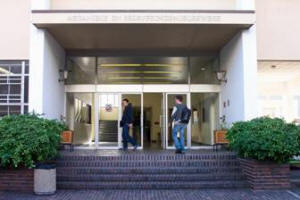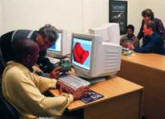Study Industrial Engineering in South Africa
Department of Industrial Engineering University of
Stellenbosch
Industrial
engineers (IEs) are responsible for the optimal design, implementation,
integration, operation, improvement and management of high level
systems. Such systems typically consist of chemical, electrical,
electronic, mechanical or civil components. These high level systems
are not available as off-the-shelf items and cannot be imported or
bought from a supplier. They normally consist within organisations as a
mixture of equipment, information, people, capital, policies, processes,
etc. IEs figure out how to do things better and engineer processes and
systems that improve quality, productivity and save money. Industrial
Engineering therefore is a broad professional engineering discipline
applied to designing effective systems and procedures for using the
basic resources of any transformation system (people, machines,
material, IT-systems, capital and entrepreneurial spirit) in
organizations in which human and physical resources are combined and
integrated to achieve specific objectives.
An industrial
engineer draws upon knowledge of mathematics, physical and engineering
sciences, and management and behavioural sciences to function as a
problem-solver, innovator, coordinator and change agent. IEs understand
the language of: other engineers, scientists, financial people,
industrial psychologists, business analysts, environmentalists and
information technologists. They have a special sensitivity for terms
such as: optimality, effectiveness, efficiency, safety, productivity,
profitability, reliability, quality, maintainability, availability and
manufacturability. They practice in all the different manufacturing
industries, service industries and government agencies. Today, more and
more businesses also hire IEs in areas like sales and marketing,
finance, information systems, and personnel. Other industries employing
IEs are hospitals, airlines, banks, transport, and social services.
Because South
Africa is a net importer of technology, local engineers are less
involved with product development and more involved with process
development. For this reason the majority of local engineers,
regardless of which branch of engineering they come from, end up
effectively performing the functions of an IE.
To
summarise, industrial engineers: Integrate all
the parts of a problem or proposed solution into one final
working entity Often have
the responsibility to try and balance the ambitions of the
technology driven engineer on the one hand and the profit
obsessed manager on the other hand.
Think globally and see the
overall picture of any problem situation.
Always attempt to optimise (new)
or improve (existing) systems or processes.
Almost any
organisation in the industrial-, business- and service sectors can
benefit from the skills of industrial engineers and therefore graduate
industrial engineers find themselves working for a wide variety of
employers, including those in:
Banking
services, Health Services, Electricity Supply Services, Distribution and
Transportation services, Telecommunication services, Mining and
Forestry, Production and Manufacturing, Chemical Industry, Retail and
Wholesale Sectors, Consulting Engineering and Education and Training.
Industrial engineers (IEs)
figure out how to do things better. They engineer processes and systems
that improve quality and productivity. IEs make significant
contributions to their employers by saving money while making the
workplace better for fellow workers. In addition to manufacturing,
industrial engineers apply their skills in a variety of settings.
For more information on 'What
IEs do?' please click here:
PowerPoint presentation
Undergraduate Program
Students enrol for the
program in industrial engineering which upon successful completion,
leads to the degree B.Eng (Industrial). This 4-year program consists of
diverse subjects, yet they all contribute to forming industrial
engineers who can respond to the challenges of industry. The first year
is common to all engineering disciplines in the Faculty of Engineering.
The program is accredited with the Engineering Council of South Africa (ECSA).
The first 2 years of the
program mainly consist of pure sciences (e.g. Engineering Mathematics)
and basic sciences (e.g. Electrotechnology). From the third year onwards
the focus is on specific Industrial Engineering topics, e.g. Engineering
Economy, Operations Research, Quality Management, Project Management and
Enterprise Design.
|
| ||||||||||||||||||||||








